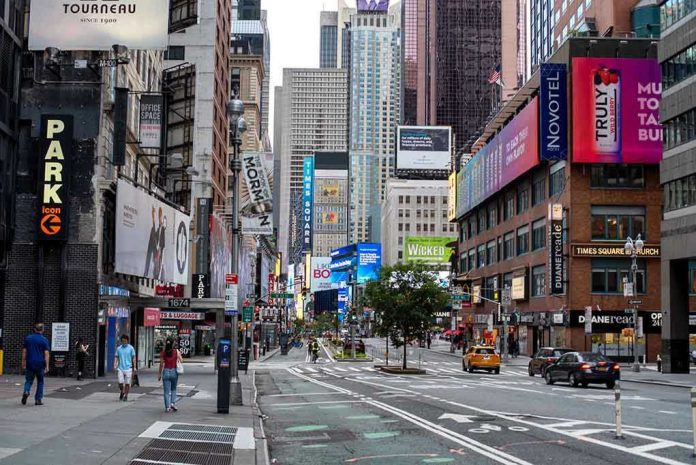
What happens when a man who claims to champion the working class casually reveals he can rely on his wealthy parents if funds run dry? Zohran Mamdani, the Democratic Socialist nominee for NYC Mayor, finds himself entangled in this very controversy.
At a Glance
- Zohran Mamdani, NYC mayoral candidate, sparks debate over privilege after video reveals potential financial support from affluent parents.
- Mamdani’s win in the Democratic primary highlights a shift towards progressive politics in NYC.
- Critics argue Mamdani’s comments undermine his working-class advocacy.
- The controversy becomes a focal point of the campaign, impacting progressive politics and voter perceptions.
Mamdani’s Controversial Comment
Zohran Mamdani, a rising star in New York’s political arena, recently found himself at the center of a social media storm. In a viral video, Mamdani, the son of acclaimed filmmaker Mira Nair and academic Mahmood Mamdani, casually mentions that he could rely on his parents for financial support if necessary. This revelation has sparked fierce debate about privilege and authenticity, especially given Mamdani’s platform of working-class advocacy and affordability reforms.
https://www.youtube.com/watch?v=fTPvKKzUq64
The video hit the internet just after Mamdani clinched the Democratic mayoral nomination, defeating former Governor Andrew Cuomo. His victory was seen as a significant shift towards progressive politics in the city, but the timing of this controversy could not have been worse. Critics, including opponents like Eric Adams and Curtis Sliwa, have seized the opportunity to question Mamdani’s credibility and relatability.
The Stakes in NYC Politics
The 2025 NYC mayoral race has already been a whirlwind of change and upheaval. Mamdani’s win over Cuomo symbolized a generational and ideological shift, driven by a voter base eager for progressive reforms. However, the controversy surrounding his comments on financial privilege could undermine his campaign’s core message of social justice and anti-establishment reform.
While Mamdani’s campaign attempted to steer the conversation back to his policy achievements and grassroots support, the narrative has shifted. The focus is now on whether Mamdani can genuinely connect with working-class voters or if his affluent background creates an insurmountable disconnect. This scrutiny is not new to NYC politics, but it highlights the ongoing tension between personal wealth and political authenticity.
Implications for Progressive Politics
The fallout from Mamdani’s comments could have lasting implications for progressive politics, both in NYC and beyond. In the short term, there’s a risk that some working-class voters might feel alienated, questioning whether Mamdani truly understands their struggles. His opponents have already capitalized on the controversy, framing him as out of touch with the very constituents he aims to represent.
In the long term, however, the incident may serve as a cautionary tale for future progressive candidates. It underscores the importance of authenticity and transparency, particularly for those hailing from privileged backgrounds. The challenge will be to balance personal transparency with policy-driven campaigns, ensuring that candidates’ messages resonate with a diverse electorate.



